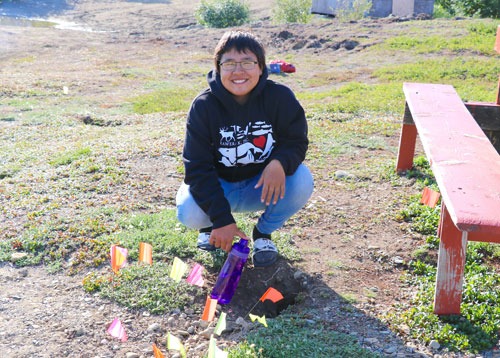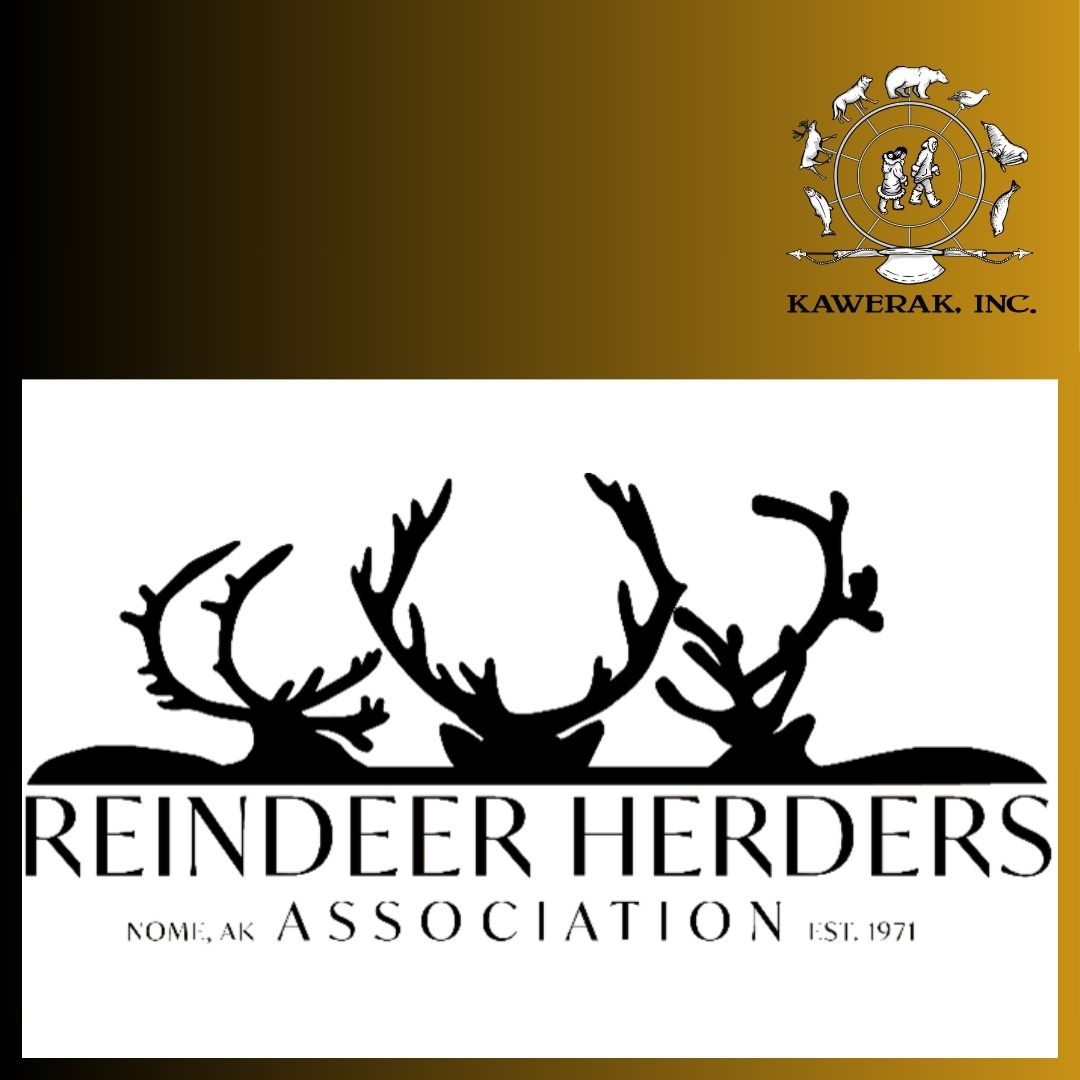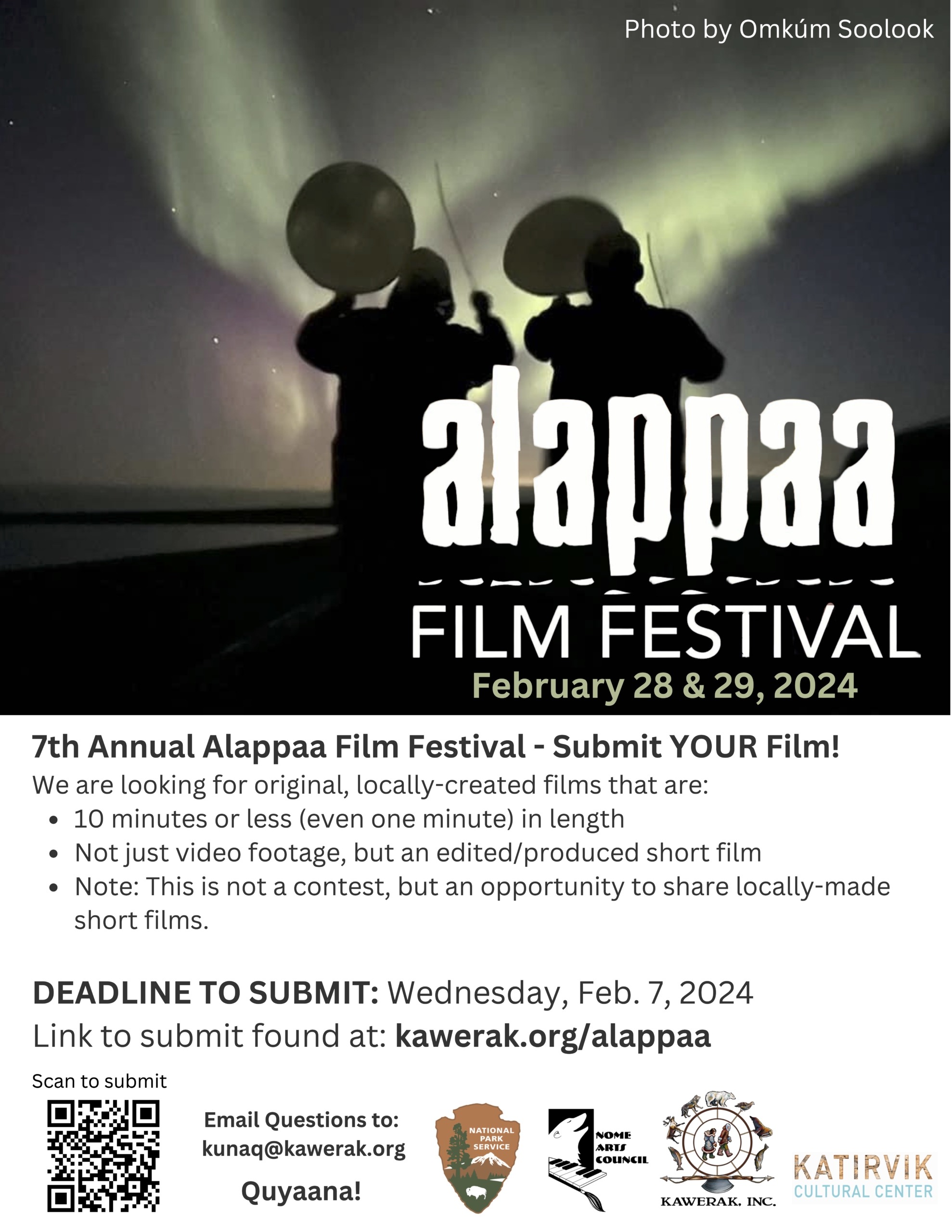Viewing a 2,000 year old harpoon head, listening to age old stories, discovering ancient medicinal plants, and standing against the backdrop of documented archaeology sites; only a week at Archaeology Camp in Nome can get you experiences like these. That’s just what twelve high school students did in July of 2018, after they applied and were accepted to the fourth annual Nome Archaeology Camp.
Over the course of 7 days at their base camp of Salmon Lake, the campers fostered their curiosity about cultural and natural resources through their tour of Katirvik Cultural Center by Colleen Reynolds, Tanya Wogittilin and Lisa Ellanna, their tour of Carrie M McLane Memorial Museum with Dr. Amy Phillips-Chan and Jack Omelak and their countless hours spent on the mountaintops and wild tundra. They also received engaging historical lessons with a tour of Pilgrim Hot Springs by Matt Ganley of Bering Straits Development Corporation, stories with Elders Joseph Kunnuk Sr., Mary Kunnuk, Vera Ozenna, and Margaret Ellanna, and through daily interactions with the camp mentors. Along the way the youth also learned research and documentation skills on four local archaeology sites (three previously-recorded and one un-recorded site), discovered the importance of protecting heritage resources, and explored new fields of study and career paths.
Traditional Inupiaq healer, Mary Jane Litchard also paid a visit to the campers, to show them the edible and medicinal garden around them on the tundra. From teas and dessert plants to plants that could heal or harm, Mary Jane taught the teens harvesting tips and important identification skills. To continue with lessons on our valuable natural resources, students also learned about caribou subsistence hunting techniques from the past, with a full performance demonstration.
As a final project, the students summarized their experiences through a variety of presentations on the topics of culture, sharing knowledge, and archaeology with the overarching themes of community-based participatory research and decolonizing anthropology. Each presentation included direct action that can be taken by the camp partners, such as petitioning the USGS to change the name of Salmon Lake to the original Inupiaq name. As a follow up to the camp, students will submit a formal presentation to the Alaskan Anthropological Association Annual Meeting, February 29-March 2, in Nome, AK.
This camp was made possible by the following partners: Alaska Geographic, National Park Service, Kawerak Inc. and the Katirvik Cultural Center, Bering Straits Native Corporation, University of Alaska Fairbanks: Northwest Campus in cooperation with the City of Nome Carrie M. McLane Memorial Museum, the Nome Boy Scouts Camp, the Bureau of Indian Affairs, the presenters, mentors and of course the students.
Nome Archaeology Camp was originally conceived as an archaeology and social sciences field school by Julie Raymond- Yakoubian and Amy Russell Jamgochian, both of Kawerak, several years ago. The field school camp was a UAF college class in Archaeology, and each student will receive 3 college credits for participating.




